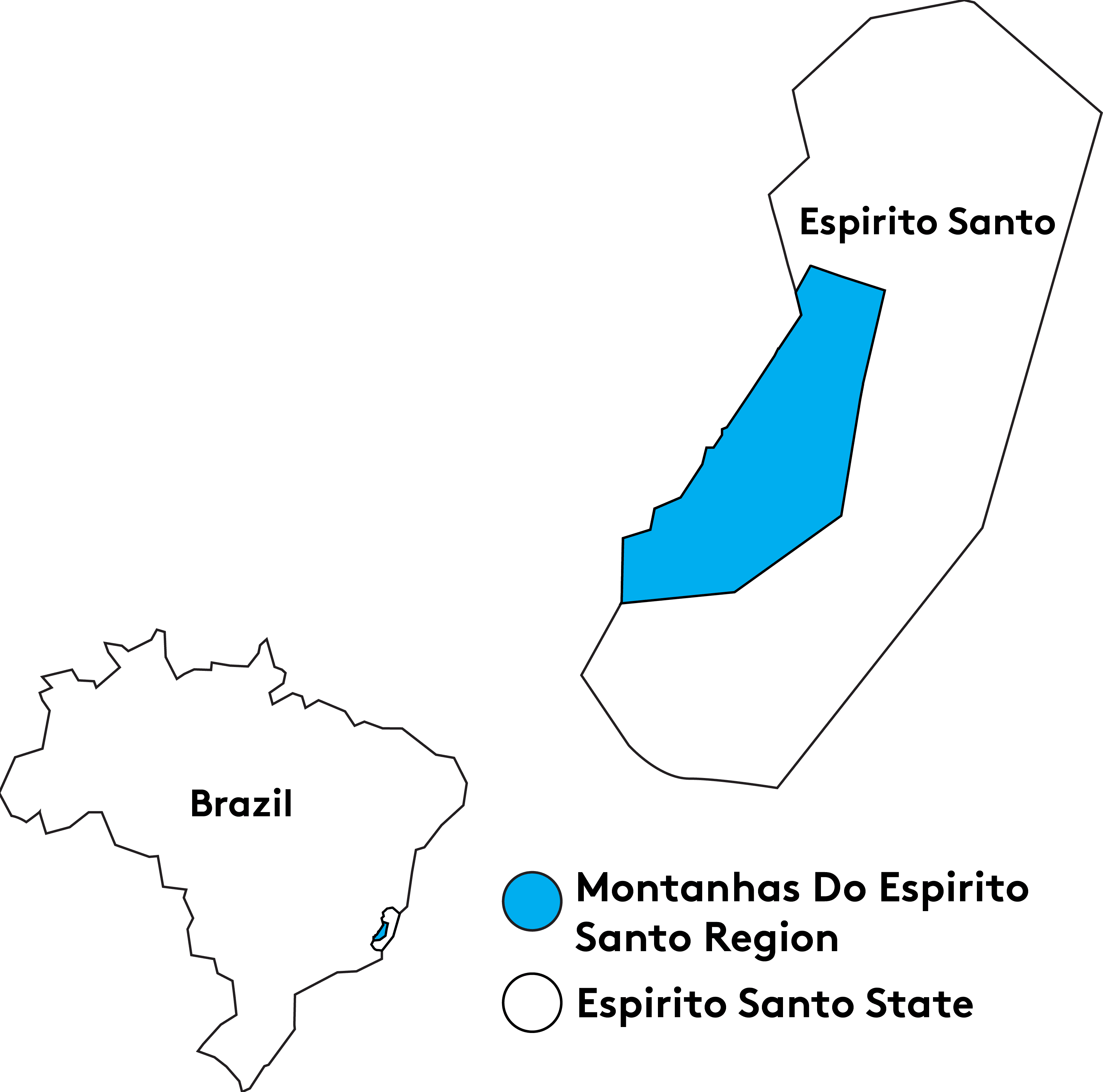Coffee producer Rafael José Dalfior Junior was born and raised in the Córrego da Prata community of Espírito Santo state. His parents founded their coffee farm, Sítio Dalfior, in the 1970s, and raised their six children there. Rafael Junior—called “Junior” by those close to him—spent time from an early age accompanying his father and learning to care for and manage the crops. Those early lessons included each step of production, helping Rafael Junior to understand planting, harvesting, and post-harvest processing on the farm.
Starting around 2008, Rafael Junior began a process of improving production management across his 1.5 hectares of coffee and introducing Pulped Natural processing into his work. Since implementing these changes, he has been able to achieve better quality in his results.
Today, Rafael Junior and his wife, Erica Denadai, work together in the operations at Sítio Dalfior. They continue in their search for high quality results by applying good practices like selective harvest of the cherries, and drying their coffee on a suspended and covered terrace.
This lot of Red Catuai coffee underwent Pulped Natural processing. Catuai was developed by the Instituto Agronomico (IAC) of Sao Paulo State in Campinas, Brazil by crossing Mundo Novo and Caturra varieties. Catuai coffees are cultivated widely across Brazil, and are known for their high productivity potential.





